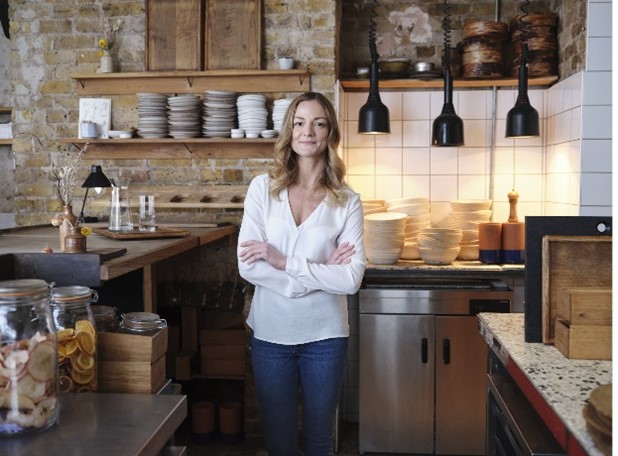HOSPITALITY CONSULTANCY SUPPORTS BUSINESSES AS THEY PREPARE TO REOPEN
Vigour & Vice (www.vigourandvice.com), an international hospitality consultancy, which enhances the performance and profitability of new and established restaurants, bars, pubs and cafes with a proven, 100 per cent success rate, has curated a range of post-Lockdown recovery tips for food & drink venues as they prepare to reopen post-Lockdown.
The consultancy is founded by Catherine Johnstone, a trailblazer in the hospitality industry, who has been working in the sector since the age of 16. She was one of Mitchell & Butler’s youngest GMs and has since held a number of positions, including Operations Manager at Jason Atherton’s four critically-acclaimed restaurants as part of the Unlisted Collection.
Johnstone has used her valuable experience and knowledge to provide a comprehensive guide on how businesses can accelerate their recovery as restrictions ease.
Focus On Finances
“Strong finances underpin any successful business. Before opening their doors, leaders should take time to complete a thorough financial planning and forecasting exercise that projects the likely performance of the business over the coming months and the next three years.
“The plan should form for the basis of all the business’ decisions and be shared with managers and used to motivate the staff, to ensure it is understood and maintained throughout the company. If the in-house team don’t have the skills or resources to complete the exercise, outsource this vital work.”
Prioritise Profitability
“Leaders need to review all their organisation’s outgoings. The amount a business spends on food and beverage goods, as well as on labour, must be tightly controlled in line with sales in order to remain profitable.
“Food and beverage businesses should generate at least 20% net profitability over the course of a year. If this isn’t being achieved, leaders need to investigate the reasons why and make dynamic decisions to resolve the issues.”
Deal With Debt
“Many hospitality businesses will have accrued debt over the last 12 months, so they must put a plan in place to deal with this so the company isn’t overwhelmed just as trade starts to return.
“Create a financial plan so a sustainable repayment schedule can be established. If possible the business should negotiate with its creditors to see if discounts on debt and future costs can be secured.
Secure Support
“The most important decision a business needs to take now is the decision to be humble. Pride will be the enemy of progress over the coming months and years. Operators need to accept the gravity of their situation, seek help, listen to the advice and be honest with themselves and their staff.
“The budget on the 3rd March unveiled extensions to the furlough scheme and continued business rates relief. The Recovery Loan Scheme ensures companies of any size can continue to access loans and other kinds of finance of up to £10 million per business. A £5bn grant scheme has also been created to help hospitality firms in England reopen, with up to £18,000 available per business. It is vital operators take swift action in applying for grants and loans and make sure that they are benefiting from all the schemes available to them.”
Boost Morale
“Leaders need to be aware of the needs of their staff, who will have been in Lockdown, possibly out of work or on furlough and experiencing anxiety about their job security.
“Boost the morale of the team and enhance the guest experience by promoting the vision and key values of the brand at regular team meetings, pre-shift briefings and through internal communications such as team newsletters or back of house displays.
“Empowering staff to take an active role in the decision-making process will also stimulate morale and provide a greater sense of purpose for each team member. This means delegating responsibility for specific tasks, and trusting and relying on the strengths and capability of the people responsible to deliver.”
Success With Social Distancing
“Social distancing will impact sales. Businesses therefore need to manage their costs in line with this reduced trade. Having a robust operating model in place will ensure that the drop in sales capacity caused by social distancing will not be significant enough to eat into all of the business’ profits.
“Businesses can work out the percentage impact on sales by establishing the percentage of covers that will have to be removed for social distancing. The percentage drop in capacity can then be used to calculate how much costs, like labour, should be cut by.
“A reduction in sales capacity of around 25%, coupled with a viable business plan and robust operating model, should provide food and beverage businesses with the opportunity to achieve around 15% net profitability over the course of the next three months.”
Go For Growth (when appropriate)
“If a business had expansion plans that were put on hold due to the pandemic, it should continue its growth and benefit from the rental opportunities and gaps that are appearing in the market. The only reason to avoid growth or alter course once emerging from lockdown is if the financial trajectory of the business was not on course, pre-Covid. A secure financial position to support growth should represent around 20% net profitability for the year preceding the pandemic.
“Ultimately leaders should respect what their financial plans are telling them. If the conditions are right to expand, then push ahead. If they’re not, take time to fix the finances before putting the business under undue strain.”

